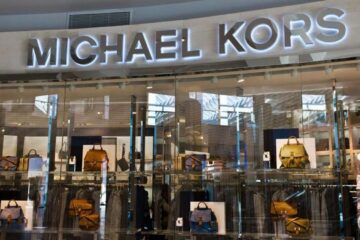Most people check the weather forecast and grab an umbrella if rain is predicted. But what do they do when the president of the United States announces higher taxes on imports from multiple countries?
Apparently, they start shopping, following a simple logic: buy now, before it gets more expensive. Not everything, of course, but enough to move the numbers.
According to the U.S. Commerce Department’s April 16 report, U.S. retail and food services sales rose 1.4% in March 2025 from February and jumped 4.6% compared to March 2024. Total sales for the first quarter of 2025 were 4.1% higher than during the same period a year earlier.
It was the strongest monthly gain in more than two years, led by motor vehicles and other goods, as consumers rushed to make purchases ahead of potential tariff-driven price hikes.
Trump’s 145% tariff on imports from China is already in effect. Other countries are currently facing a blanket U.S. tariff of 10% until July. The White House recently announced that when new tariffs are added to existing ones, the levies on some Chinese goods could reach 245%, writes the BBC.
In response, China imposed a 125% tariff on U.S. imports. Meanwhile, President Donald Trump granted exclusions from high tariffs on smartphones, computers, and other electronics imported from China. This way, tech giants such as Apple that rely on imported products got a temporary reprieve.
Smartphones and laptops are still subject to other levies, and what’s more, officials announced that electronics will soon fall under sector-specific tariffs targeting semiconductor products, expected to arrive in about a month or two, reports the Associated Press.
Electronics will soon fall under sector-specific tariffs targeting semiconductor products.
Image source: Shutterstock
What will happen when the panic buying ends?
Higher sales rates are, however, expected to slow down in a few months.
“It’s hard to feel good about Americans panic buying cars as consumer confidence craters,” said Bill Adams, chief economist at Comerica Bank, as reported by Reuters. “The economic outlook is in flux with large changes to trade policy nearly every day. Businesses selling cars, appliances, and electronics are likely to see less demand in the next month or two as panic buying ends.”
Related: Shocking photos reveal Tesla’s potential ballooning concern
Shannon Grein, an economist at Wells Fargo, agrees that this trend “will likely be short-lived. Increased uncertainty around tariff policy has led many businesses to pause major capex, which is set to bite domestic manufacturing.”
According to Lydia Boussour, senior economist at EY-Parthenon, price-sensitive consumers are expected to become more cautious about their spending by reducing non-essential purchases.
Will consumer buying habits shift?
Back Market CEO says their sales tripled after tariff hit
Back Market is a Paris, France-based operator of a global marketplace for refurbished electronics, including laptops and smartphones, aiming to help people do more with what they already have to avoid unnecessary carbon emissions and reduce tech waste.
It was founded in 2014 by Thibaud Hug de Larauze and Vianney Vaute and has grown by double digits year over year. To date, it has sold more than 30 million refurbished devices across 17 markets, avoiding approximately 1.6 million tons of carbon emissions.
Over the years, Back Market raised money from high-profile investors such as Goldman Sachs, Aglaé Ventures (the venture arm of Group Arnault), and Eurazeo Growth. The platform is available in 13 European countries, Australia, Japan, South Korea, the UK, and the United States.
The company’s CEO Hug De Larauze told CNBC Make It that Back Market sales have tripled in a single week amid Trump’s tariff announcement. “Maybe some people rushed into [replacing their smartphones or computers] earlier, because they were afraid it’s going to cost so much more weeks from now,” de Larauze said.
According to Hug De Larauze, it is possible that more Americans could start choosing used or refurbished devices if tariffs raise prices. “This is a big opportunity to change the way American people consume this stuff, because the incentive has never been as high to avoid those tariffs,” he says.
Can consumer behavior shift that quickly?
Dan Ives, Wedbush Securities’ global head of technology research, agrees that prolonged tariffs could result in a significant jump in short-term sales of used and refurbished devices, especially smartphones. However, in the longer run, Ives is skeptical that a typical American consumer would permanently shift to refurbished alternatives. “We believe 80% to 90% of consumers like buying a new smartphone, [and] buying behavior is hard to change,” Ives says.
Some analysts estimate that tech conglomerates such as Apple might need to raise their prices by hundreds of dollars per product, depending on the eventual electronics-specific tariffs. If that happens, it will be interesting to see how a typical American consumer would remain faithful to the habit of buying new devices.
Related: Analysts reboot Netflix stock price target after earnings


